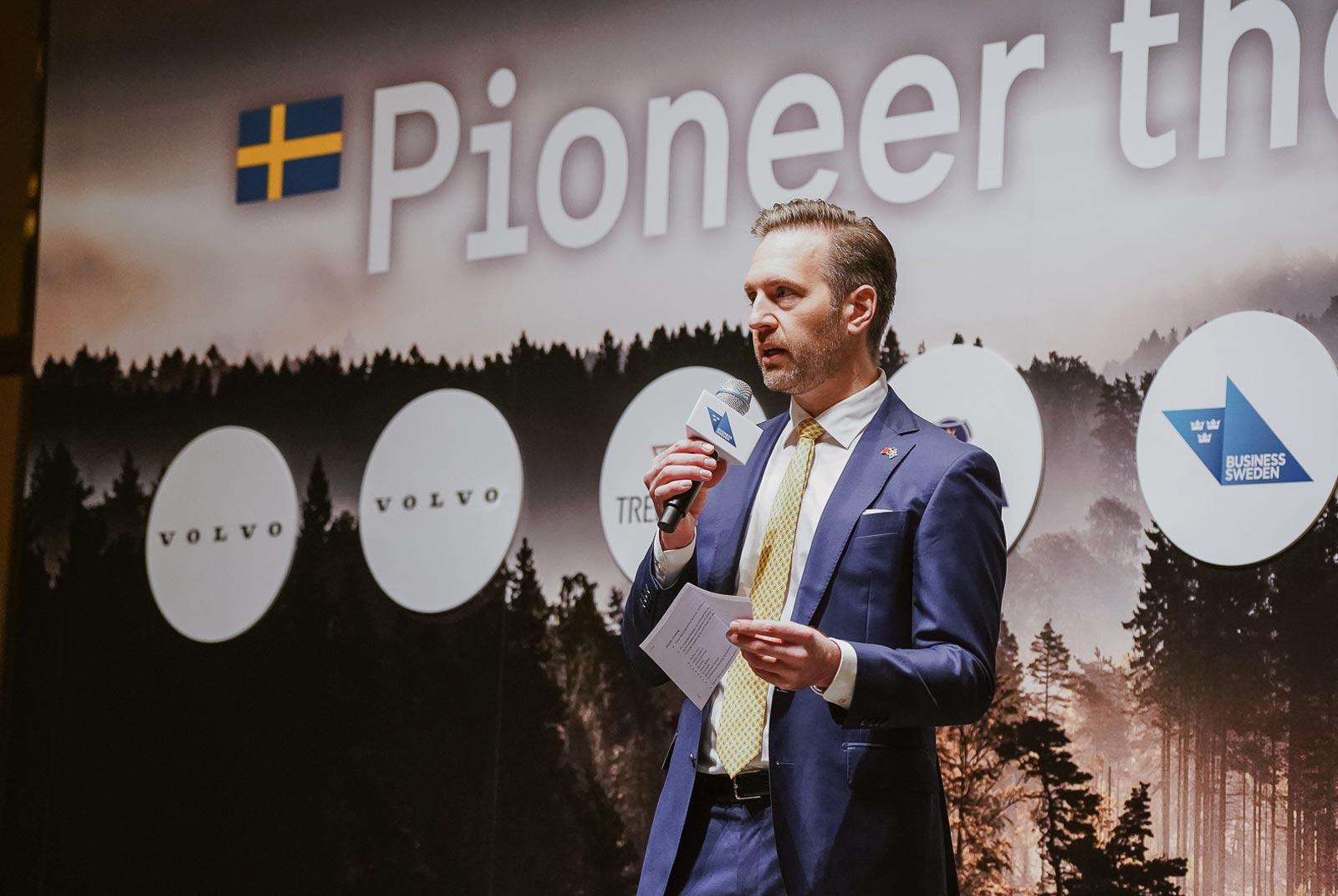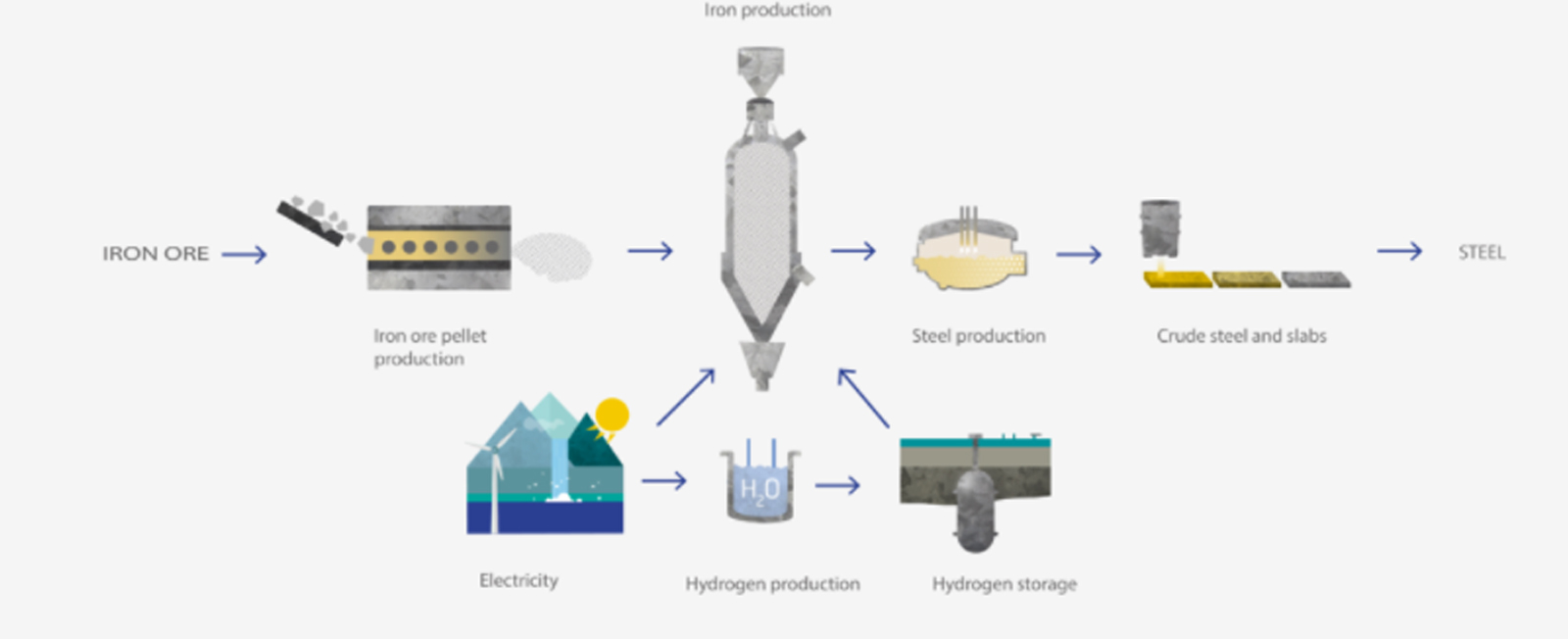Fossil Free Sweden is within reach- A new type of public-private partnership is required

Source:Fossil Free Sweden
If the world is to reach the climate target in the Paris Agreement, the key is for business to start seeing the transition as an opportunity instead of an obstacle. How can the Swedish government and the commercial sector work together towards the goal of net zero?
Views
Fossil Free Sweden is within reach- A new type of public-private partnership is required
By Svante AxelssonCommonWealth Magazine
The road to a world beyond the addiction to fossil-fuels is also a road to a more modern society with increased well-being. It is also a road that leads to many new business opportunities and where cooperation between both states, municipalities and companies will increase the speed and benefit all. In Sweden a new kind of relationship between the Government and the business sector is developing in a way that hopefully can inspire others to follow the same path.
If the world is to reach the climate target in the Paris Agreement, the key is for business to start seeing the transition as an opportunity instead of an obstacle.
When the realisation of the competitive advantages to be gained by transitioning quickly and the danger of being last to leave the fossil economy spreads, companies will be a blowtorch on politicians rather than standing on the brakes.
In Sweden this ambition is shown in the roadmaps drawn up by 22 business sectors where they present their own pathways to a fossil fuel free future and what conditions they need politicians to put in place to enable them to follow them.
Together these sectors account for over 70% of Sweden’s territorial emissions and among them are those usually said to have hard-to-abate emissions, for example steel, fuel, cement and aviation.
The process was initiated by Fossil Free Sweden, an initiative that was set up in 2015 by the Swedish Government as way to bring together – and listen to – non state actors that wanted to help the climate crisis.
The roadmaps have brought companies in these industries together around their common challenges and given them the opportunity to independently come up with a way of determining how they will contribute to reaching the national climate target of net zero by 2045.
For the steel industry, this is primarily a matter of replacing the more than 1000 years old blast furnace process in which carbon and coke are used to remove oxygen from iron ore.
To overcome this, a joint company called HYBRIT, steel manufacturer, SSAB, mining company, LKAB, and energy company Vattenfall, are developing a technology that uses green hydrogen for direct reduction, with a residue of water and not CO2. Their target is to have fossil fuel free steel on the market by 2026 and in full production by 2030.
 (Source: HYBRIT's website)
(Source: HYBRIT's website)
For the cement industry, whose work naturally affects the concrete industry, as well as construction and civil engineering, the solution is to use technology for carbon capture and storage (CCS). Cementa, which is part of the HeidelbergCement Group, plans to use CCS across its entire plant in Slite in 2030, probably making it the first carbon neutral cement plant in the world and even achieve negative emissions since more and more biofuels are being used in their process.
 (Source: Cementa's website)
(Source: Cementa's website)
The aviation industry, meanwhile, has set itself a target for all domestic air services to be fossil fuel free by 2030 and has stipulated that all flights starting from Sweden will achieve the same by 2045. The automotive industry is aiming for 80% of new sales of private cars and 50% of all heavy trucks to be electric by 2030 – at the latest. Already this year the numbers for private cars will land somewhere between 40-50% of all new sales.
But the roadmaps also identify what challenges each industry is facing and what is required politically to overcome these. The solution for many industries is, as in the case of transport, to electrify, and politicians must therefore ensure that fossil fuel free electricity is readily available.
This will involve the rapid expansion of electricity grids. But it also involves unleashing major short-term investment to ensure fossil fuel free competitiveness in the long term. Government has an important role here in risk reduction so that green investments are able to attract private capital.
Moreover, central government and other public actors are instrumental in helping create green value chains through the requirements they specify in public procurements. Several industries in both transport and construction point out that technology to radically reduce emissions is available, but for industry to be able to make the necessary investments in it, in a competitive market, buyers must specify clear climate requirements.
Even though major investments are required and production costs can rise, research shows that this does not need to mean particularly large price differences for the end consumer. The cost of producing steel in a fossil fuel free process, for example, is estimated to increase by 25%, but for the end consumer – of, for instance, a private car – the price increase is less than half of 1%.
Similarly, the production of cement using CCS technology can increase costs by up to 70%, but here, too, the cost increase for someone buying an apartment in a building constructed using carbon neutral cement also turns out to be less than 1%.
The roadmaps have contributed to a new type of dialogue between politics and business in which companies are increasingly asking for more ambitious and clearer climate policy in order to enable them to transition more quickly so that they do not fall behind in international competition.
One clear example is how Håkan Samuelsson, CEO of Volvo Cars, last year stated that he wanted to see a ban on petrol and diesel cars in order to speed up the company’s transition to electric vehicles only. This is a step that the Swedish Government is yet to take.
Today was a milestone for Volvo Cars. We will recharge our company with sustainability and customer care. All future pure electric cars will be available online only and with a complete customer care package. pic.twitter.com/Kmwv8I82oV
— Håkan Samuelsson (@hakan_samuel) March 2, 2021
Taken together, the roadmaps join up to show a jigsaw puzzle of how to transition to a fossil-fuel free Sweden. They show the challenges to be faced in piecing together the puzzle and they show what the synergies are and what areas could be developed both to accelerate progress and to create new industry and export branches.
The specific vision of creating a fossil fuel free welfare nation is at the centre of Sweden’s climate strategy. A transition that does not secure people’s quality of life and ability to support themselves will both meet great resistance and serve as a bad example for other countries looking on.
This is the most important point of all. Fighting climate change is not a competition between countries or companies about who can reach zero emissions fastest. If everyone doesn´t speed up their transition, no one wins. As we are all entangled in value chains reaching all over the world, we all share the same emissions and the responsibility to get rid of them.
Therefore Sweden and Swedish companies are reaching out to other countries, cities, municipalities and businesses to join us in developing the solutions that can combat climate change and increase the well-being for all. We are glad to see the 8 Swedish companies in Taiwan (Assa Abloy, Atlas Copco Taiwan,
Baseload Power Taiwan, Ericsson Taiwan, Scania Taiwan, Trelleborg Sealing Solutions, Volvo Cars Taiwan, Volvo Group Taiwan) from the various fields of manufacturing, renewable energy, telecom and transportation have joined with Business Sweden to form the Sweden+ Taiwan Green Transition Alliance and announce individual pledges to reduce environmental and carbon footprint in support of green growth and carbon neutrality in Taiwan by 2050.
About the author:

Svante Axelsson is the national coordinator for Fossil Free Sweden, a governmental initiative that brings together companies, municipalities, regions and organisations that stands behind the declaration that Sweden will be one of the first fossil free nations in the world. Fossil Free Sweden works to identify and remove obstacles to increase the speed in the transition. Before appointed national coordinator Svante Axelsson was the secretary general of The Swedish Society for Nature Conservation.
Have you read?
♦ COP26 to showcase Scotland’s global commitment to a net zero future
♦ How UK and Taiwan can rise to the challenges and opportunities of climate action
♦ Spending 1.4 billion on a small Malaysian island to plant trees, what is Sinyi Realty thinking?
Uploaded by Penny Chiang






